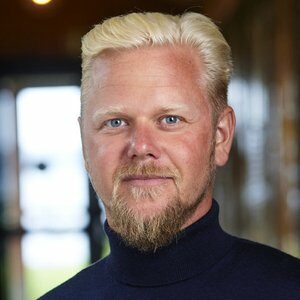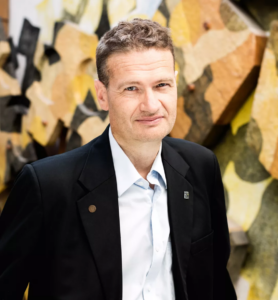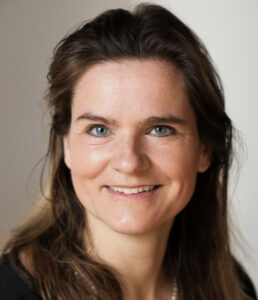When the EU presented its annual ‘innovation scoreboard’ for the member states, Sweden was at the top – and not for the first time. Sweden has a long history as an innovation leader and is often mentioned as a role model for green technology.
Alfred Nobel was not the only one to submit patent applications in Sweden, he was followed by the innovators behind the pacemaker, Tetra Pak, ball bearings, Bluetooth and Spotify – and many more. The great variety of Swedish businesses provides a good foundation for new innovations, according to Olle Dierks, who’s on the program management at Viable Cities, a strategic innovation programme that focuses on climate-neutral, sustainable cities.
– We have a history of strong individual companies in Sweden. Today, system innovation is emerging. Government agencies, local governments, startups, multinational companies and other public and private actors are reaching out to each other. New alliances are formed to better overcome gaps and structural barriers to innovation. We need innovation on all levels to accelerate the sustainable transition, so this progress is very promising, Dierks says.
Over the last few years, sustainability has become increasingly crucial in Swedish innovation, and the climate crisis is now making an impression on many new ideas.
Meanwhile, cooperation between nations has rarely been as important as it is now.
 – When it comes to complex issues such as the climate, a wide range of innovation is needed, and this is not only found in Sweden, says Dierks.
– When it comes to complex issues such as the climate, a wide range of innovation is needed, and this is not only found in Sweden, says Dierks.
Viable Cities has led work with Climate Neutral Cities 2030, where 23 Swedish municipalities are working with Viable Cities and five government agencies to achieve the mission of becoming climate neutral by 2030. To do this, they are using the tool Climate City Contract 2030. The idea is that the contract can be used at different societal levels, locally and internationally. It is a living document and will be refined, revised and signed every year until 2030. It describes what the cities will do and how public authorities will support their work. Olle Dierks believes that this work will increase the level of innovation.
– The Climate City Contract is an important tool for enabling cities to lead global work for the climate, as well as initiating various types of innovative solutions and processes. Knowledge exchange is also a good basis for trade, he says.
Trust is important for innovation
Sten Stenbeck has worked with innovation development at RISE for ten years. He highlights trust as an important factor in Swedes’ work with innovations.
 – Trust in the system and in each other makes it easier for us to share thoughts and ideas, which is a good foundation for developing innovation. Another area in which we have come a long way is governance, where many actors participate in the process and collaborate, for example within a city.
– Trust in the system and in each other makes it easier for us to share thoughts and ideas, which is a good foundation for developing innovation. Another area in which we have come a long way is governance, where many actors participate in the process and collaborate, for example within a city.
Some of the challenges that Sweden is tackling through innovation programmes and cooperation between academia, the public sector and business include the development of sustainable and smart cities, sustainable mobility, transportation and creating a more circular and biobased economy.
Stenbeck refers to one project he worked on, about investigating how existing solutions can be used in crises and disasters. This resulted in Ecobarge, a concept where energy and water purification are established at floating plants, where solar energy is being used to run desalination plants.
– The idea is that they can be utilised where water and energy are needed, says Stenbeck.
Outreach is a challenge
Reaching out with innovations and green technology is always challenging, and Swedish companies are no exception.
– We are top of many rankings and, globally, are one of the countries with the most patents, but doing business and getting an international breakthrough is not always easy, says Ann-Sofi Gaverstedt. She is one of the founders of urbs., a company that supplies sustainable solutions for properties, infrastructure, and cities internationally.
 – We started urbs. because we saw the need for an actor that can take the role of consortium leader internationally and cluster solutions from smaller companies that do not have the capacity to take that role themselves, and also make it possible for Nordic financing in international projects, says Gaverstedt.
– We started urbs. because we saw the need for an actor that can take the role of consortium leader internationally and cluster solutions from smaller companies that do not have the capacity to take that role themselves, and also make it possible for Nordic financing in international projects, says Gaverstedt.
Ann-Sofi is also active within ElectriCITY Innovation, an association that will enable Hammarby Sjöstad to be the most sustainable district in the world through citizen engagement, and at the same time support other districts in Sweden and internationally to carry out similar conversion work. She leads the export work within ElectriCITY called Urban Tech Sweden, which was founded to meet the challenge for Swedish companies to succeed internationally.
– There is an international desire for Swedish expertise, technologies and financing, particularly in heating, cooling, mobility, energy efficiency and grid balancing, she says, and adds that if Swedish environmental technology is to be put to use abroad, it is often necessary to export a comprehensive approach, as well as thinking innovatively about business.
urbs. has won the prestigious Empire Building Challenge, with a model for how New York City can decarbonize high-rise buildings through flexible systems thinking, a model that is now being rolled out together with Swedish companies and a constellation of real estate players and is supported by the Energy Agency in New York State.
– At urbs. we don’t just offer a single component, but rather a mindset, and we present the best solution for the end customer in an innovative system with linked financiers and system solutions, says Gaverstedt.
Read more about Viable Cities.